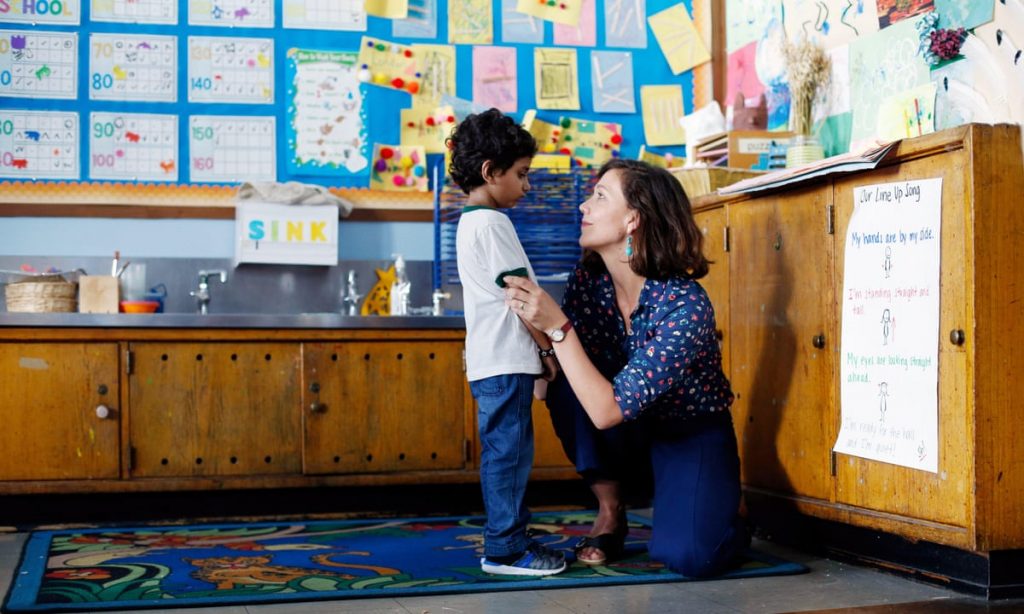What Is School Choice?
One of the most heated debates concerning public education today is that of school choice and voucher programs. This controversial topic has always been popular in areas where ratings indicate public schools are failing the students they claim to be teaching. But what is new is that, even in public schools with supposedly good ratings, parents are beginning to demand school choice.

One of the most heated debates concerning public education today is that of school choice and voucher programs. This controversial topic has always been popular in areas where ratings indicate public schools are failing the students they claim to be teaching. But what is new is that, even in public schools with supposedly good ratings, parents are beginning to demand school choice.
It’s pretty simple. Parents want a choice. They want more opportunities for their children. They want a say in where and how their children are educated. As it stands now, for most families in the public education system, children must attend the public school that is within their school district. What’s more, parents have almost no say in what their kids are taught in those public schools. Parents are waking up to the state of education and they are speaking up. What they’re saying is they want school choice.
SO WHAT IS SCHOOL CHOICE?
In simple terms, school choice is a way of giving parents the ability to select the K-12 educational options that they feel best fit their children. School choice eliminates school district boundaries or where a school is located as a the main factor determining where your child is educated. Instead if gives parents the power their child in a learning institution they feel works best for them, whether it’s public school, private school, or in some cases even private tutors or investing in special materials for homeschool.
Most agree every child deserves an education that can be challenging, motivating, and most of all, rewarding. Because not all children are built the same, nearly every expert agrees a variety of educational options is crucial. What works for one child may not work for the next. If given the opportunity to choose a child’s school, it could go a long way in ensuring that children remain motivated, inspired, and hopefully happy throughout their educational years. Or at least that’s the argument being made by school choice advocates.
TYPES OF SCHOOL CHOICES
One reason school choice is such a hot topic is that now, more than at any time in the past, there are quite a few educational options. School districts and private schools offer a wide range of school types making choice a little more difficult. Some options seen are:
Neighborhood Public Schools – These schools are funded by the government and typically this is the school your child already attends. These schools are free and their location, close to home, makes them a convenient choice for most. For the most part, these schools only allow children in the designated boundaries to attend, but allowances are sometimes made for students in another district to attend if there is enough space.
Charter Schools – These are also public schools, so families do not have to pay for their children to attend. What is different between public schools and charter schools is that charter schools are not set up by the state, they are instead established independently with the help of educators, parents, and community members. These schools do not fall under the same state and federal requirements as public schools, though they do have their very own high standards of performance and are often influenced by the local teacher’s union.
Magnet Schools – Also a public school that doesn’t have any tuition requirement. Magnet schools are specialized schools that typically have a particular focus or two, such as music or science. In some cases, students wishing to go will have to test to get in. Other times, parents can simply request their child to attend and get on a waiting list.
Virtual Schools – By now, most families understand what this is all about as the COVID pandemic has rendered most children, virtual learners. Instead of your child learning virtually because of the pandemic, this would be full-time, all the time. Children take classes from home, via the internet. Virtual schools are subject to government and federal guidelines, so in that regard, they are very much like public schools in terms of content.
Private Schools – Private schools can be religious or secular in nature. These schools charge tuition to attend, tuition which would be paid by the state in a school choice system. These schools are designed to support a family’s belief system on how their child should be educated, whether it be academic specialization, specific teaching styles, or religious education, or anything else for that matter. Private schools routinely perform better than public schools in most tests and metrics. A major issue with these schools is the voucher debate, which we will get into in a bit.
Homeschool – This option is becoming more and more popular, especially given the state of public schools during the ongoing pandemic. Here, parents control the classroom inside their homes. They can follow a more rigid, public-school approach, or they can take on an unschooling approach and let the child lead the way. Or parents can do something totally different, in between, and catered to their child’s specific learning needs. Homeschool kids routinely outperform kids educated in both public and private schools, on nearly all tests.
FUNDING SCHOOL CHOICE
Technically parents already have a choice when it comes to their child’s education. In fact, they have many choices. What they don’t have a choice in is where their money gets sent. For instance, parents who want to send their kids to private school can’t take the tax money they’re already paying the public school and use it there. Instead they must pay an additional cost to send their child to private school, while they local public school system keeps their money. That makes options like private school totally unaffordable for most parents. School choice intends to change that.
School voucher programs work on the premise that parents know what’s best for their child and thusly should be able to choose which educational institution their child show go to rather than the local school district. A voucher program would then take the tax dollars that typically go to public schools for a specific child and instead give them directly to parents so they can pay for their child’s education as they see fit. The money follows the child, not the teacher the government has assigned to teach him or her.
Parents can use these funds for another school, for home school, or to help pay tuition for private schools. The amount school choice families get is based directly on what their public school of record would receive if the child was going there.
Ultimately this could actually end up saving the government tax dollars. Public schools frequently spend well over $20,000 per student. The average cost of a private school is $8,000 per student and those schools usually get far better results in the process. So instead of paying a failing public school $20,000 to do a bad job educating your child, the government would pay a private school $8,000 to do a good job. In many cities even the most high-end private schools cost as little as $15,000 per year.
THE CASE FOR
There are plenty of favorable arguments surrounding school vouchers and school choice, one being that it empowers parents to make the right choice for their child, basing it on needs, learning styles, or interests. Another, as mentioned, is that parents would not have to pay twice for their child’s education; paying tuition costs for the good school their child attends, and then also paying tax dollars which go to a bad school their child can’t use.
By allowing parents a choice, they no longer have to deal with the failing public school system. They don’t have to worry about their child falling through the cracks in public education.
Better still, a voucher system breeds competition. By applying this voucher system, it can breed competition. School choice advocates point out that right now Public Schools have a monopoly on education. They get paid whether they do a good job or not. Given that, they don’t really have an incentive to actually care about their kids, and many believe their actions during the pandemic have proven that in fact they don’t. School choice means they either put in the effort, fix their problems, or they die. Either way, your kids end up with a better education.
THE CASE AGAINST
Not everyone believes school choice is the answer, though it’s worth pointing out that most of the opponents of it are usually part of the public school system. Teacher’s unions, in particular, have been fighting tooth and nail to prevent parents from getting other education options for their kids.
Public schools, obviously, are not on board with this. They claim that school choice would only result in public schools losing money as people pull their kids out. Teachers unions, which control the public schools, claim this would destroy the entire public school system. School choice proponents point out that, if they were doing a good job, then they wouldn’t lose money. If the schools are bad, why shouldn’t they fail and be replaced by something better?
Opponents say taking away funds from public schools will be detrimental to the kids who remain in those schools. They also feel the value of public education would dip even further. Advocates would again point out that in this situation, there’s no reason any kids would be left in a failing public school, they’d all be able to simply take their money and go elsewhere.
Another objection raised by teacher’s unions involves funding of private schools. As some of these private schools are religious in nature, using tax money to help fund a private religious school would, they believe, be a violation of the constitutional separation of church and state.
A final objection of school choice opponents is that they claim not all students will benefit. Since private schools continue to have the ability to pick and choose who gets enrolled, they don’t think all students and families will get what they want. Opponents say these schools can still discriminate against certain students if they so choose. What they’re missing, of course, is that with an endless number of private schools there will always be one for nearly every kind of kid. And there are always other options too, like paying private tutors or choosing homeschool As long as there’s money on the table, there will be someone willing to take it.
CURRENT STATE OF THE SCHOOL CHOICE DEBATE
The school choice debate rages on. While most agree that families should be allowed choice, the bigger debate is what to do with the public-school funds. Should families be allowed to take their tax dollars and apply it to a school of their choosing? Should they be allowed to keep that money for themselves if they are wanting to home school their children?
There are a number of states that are leaning rapidly leaning toward letting families making their own choice. School voucher programs are being offered in more states than ever before and it doesn’t look like they will be going away any time soon, despite the efforts of teachers unions.



